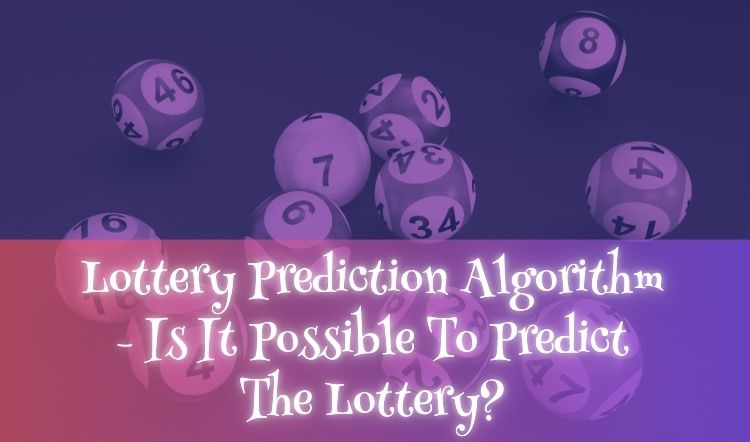
The lottery is a game of chance, with results drawn at random. Still, some are interested in whether it might be possible to anticipate future outcomes using data and algorithms.
This has led to ongoing discussion around lottery prediction algorithms—systems designed to analyse previous draws in search of patterns or trends. In this blog post, we take a closer look at what these algorithms involve, why they are generally unreliable, and whether any meaningful patterns can actually be found in lottery results.
What Is A Lottery Prediction Algorithm?
A lottery prediction algorithm is a tool some believe can help pick numbers for the lottery, in the hope of improving their chances. These algorithms usually work by analysing past lottery numbers and using statistics to suggest which numbers might come up next.
Some people think this method can help them make smarter choices. However, as you'll see in the next section, the actual draw process isn’t influenced by this kind of analysis.
Is It Possible To Predict The Lottery?
The lottery uses advanced machines and strict procedures to ensure every number drawn is truly random. This makes it impossible for any person, system, or algorithm to predict which numbers will be chosen.
Though some may claim otherwise, no method can guarantee a win or even increase the chances in a meaningful way. Similar to how slot games work, every lottery outcome is independent and not affected by what’s happened before.
If you’re interested in exploring prediction strategies for interest or experimentation, you should keep in mind that these methods are intended for entertainment purposes and are not proven ways to achieve accurate results.
Why Do Lottery Prediction Algorithms Fail?
The main reason these algorithms don’t work is that the lottery is designed to be entirely unpredictable. While people might notice that certain numbers appear together sometimes, each draw is entirely separate from previous ones and not influenced by any earlier outcomes.
Most prediction tools focus on analysing past results, but this does not make future draws any more predictable. Even attempts to identify supposed patterns, such as those referenced in high-profile studies, do not actually provide reliable guidance for future draws.
So, despite any promise or complicated calculations, the lottery stays random and can’t be cracked by an algorithm.
Can Machine Learning Predict The Lottery?
Given how advanced AI and machine learning have become, it’s understandable to wonder if these technologies might find a way to predict lottery numbers. However, machine learning also relies on finding patterns in  large amounts of data. Since the lottery is truly random, machine learning methods can’t predict future draws either.
large amounts of data. Since the lottery is truly random, machine learning methods can’t predict future draws either.
Even if a program could generate random numbers for you, it would have no way of knowing the outcome before the winning numbers are picked, and there are too many unknowns involved. Since the draws are carried out after tickets are bought and numbers are selected, no machine has access to any advantage.
While machine learning is powerful in other fields, it can’t help with predicting results in games of pure chance, like the lottery.
If you want to read more about this particular subject, you can check out our article "Can AI Predict Lottery Numbers?".
Does The Lottery Have A Pattern?
No, there is no pattern to lottery results. Every draw is a separate event, and numbers are not influenced by skill or any particular picking strategy. Some players like to track 'hot' numbers—those that seem to be drawn more often—but this does not increase the chance of winning.
All players have an equal chance in every draw, which keeps the lottery fair for everyone.
Conclusion
It’s clear that there is no way to predict lottery results, no matter what method or technology is used. The lottery is based on random chance, ensuring everyone gets the same fair opportunity.
If you decide to play, always remember that every draw is independent, and past results cannot help you choose future winning numbers. Make sure you keep responsible gambling practices in mind and never spend more than you are willing to lose.
**The information provided in this blog is intended for educational purposes and should not be construed as betting advice or a guarantee of success. Always gamble responsibly.
